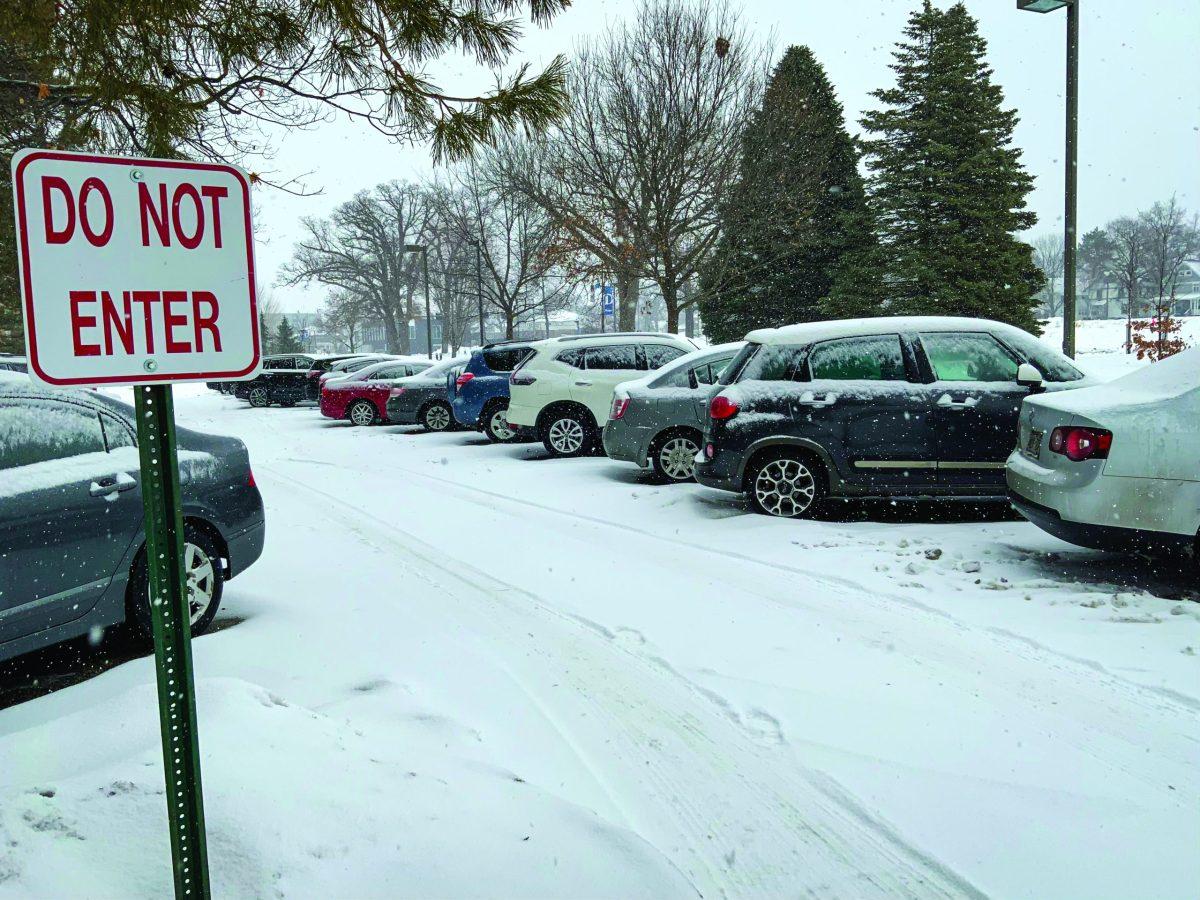At first, Madelynn Aeilts thought the cold might be the problem.
It was the first week of the new semester at Drake University, and she was about to take her broken laptop into a repair shop. She repeatedly turned her car on and off, but the engine continued to make a noise that she described as “completely wrong” and similar to the sound of a lawn mower.
Two days later, Aeilts took her car to an auto repair shop and was told that her car’s catalytic converter had been stolen.
“Basically, someone went underneath my car and sawed it right off,” said Aeilts, who is a pre-pharmacy student at Drake.
Scott Law, the Drake University Executive Director of Public Safety, sent a campus-wide email on the morning of Feb. 4 that informed recipients of “several reports” of catalytic converter thefts in the previous 24 hours. Law later said that Public Safety has received five reports of stolen converters recently.
“During my time here, I think we’ve had like, you know one report here, one report there, but this is the first time we’ve had any type of number of thefts all at one time,” Law said.
Law said that it only takes about three or four minutes maximum for someone to steal a catalytic converter.
“It looks like they’re seeing a car, seeing that no one’s there for a little while, and taking advantage of the ability to get in and out quickly,” Law said of the thieves.
Law said that the cost of a catalytic converter can range from $500 to $1000, and he said that catalytic converter theft is a citywide, statewide and nationwide problem. He named two reasons why thieves have targeted catalytic converters.
“One is, they have a number of precious metals inside of them that helps to clean the exhaust as it goes through the car, as it’s released, so the precious metals have a high value,” Law said. “So that’s one reason. Sometimes they’re also stolen, however, for, to be sold to chop shops or other shops for cars that have damaged catalytic converters for replacement.”
Law said that in response to the recent thefts, Public Safety has redeployed Des Moines Police Department officers who work for them in the evenings to increase the police presence in residential parking lots. He called it an attempt to be “omnipresent,” and he also said that the number of cameras in these parking lots has been increased.
Drake pharmacy student Sarah Hennessey said that she has noticed the increased presence.
“Like if I was driving back from work, I would maybe see one Public Safety car around campus somewhere,” Hennessey said. “Since it’s happened, I would say I see maybe one Public Safety vehicle roaming around campus, and then one or two parked in the parking lots, which is nice.”
According to Law, the thefts that were reported to Public Safety occurred in Drake parking lots where students are allowed to leave their cars overnight.
Not all of the thefts took place on campus. Hennessey said that several catalytic converters, including her own, were stolen from cars at properties owned by her landlord on the same night in late January. Hennessey lives in an apartment building on 34th Street, and she said that the other properties are on or near 34th Street.
“We do regularly patrol 34th Street, but obviously we don’t get down 34th Street as much as we get through our own parking lots,” Law said.
Kaili Miller, a junior at Drake, had her catalytic converter stolen early in the fall semester. She lives at the Alpha Phi sorority house on 34th Street.
“They know my car. They know I probably got the parts replaced. They, you know, are smart enough to do it again,” Miller said of the theft.
To lower the risk of having your catalytic convertor stolen, Law recommends parking in well-lit areas, checking on your car at irregular intervals and seeking the advice of your insurance company and mechanic.
“But I think the most vital thing I can say is that we don’t want the students confronting or trying to physically intervene if they see something going on, but we do want them calling us,” Law said.
Law stressed the importance of the Drake community providing assistance to Public Safety by reporting suspicious activity in parking lots.
“You could be preventing either yourself or someone you know from being the victim of this type of crime,” Law said. “I like to say all the time, there’s about 23, 24 [pairs of] eyes in the Public Safety Department, but with the help of our faculty, students, and staff, we have over 5000 [pairs of] eyes on campus.”
Students can report concerns to Public Safety by calling 515-271-3860 or by sending an email to scott.law@drake.edu. The emergency number for Public Safety is 811 when the caller is on campus and 515-271-2222 when the caller is off campus.







